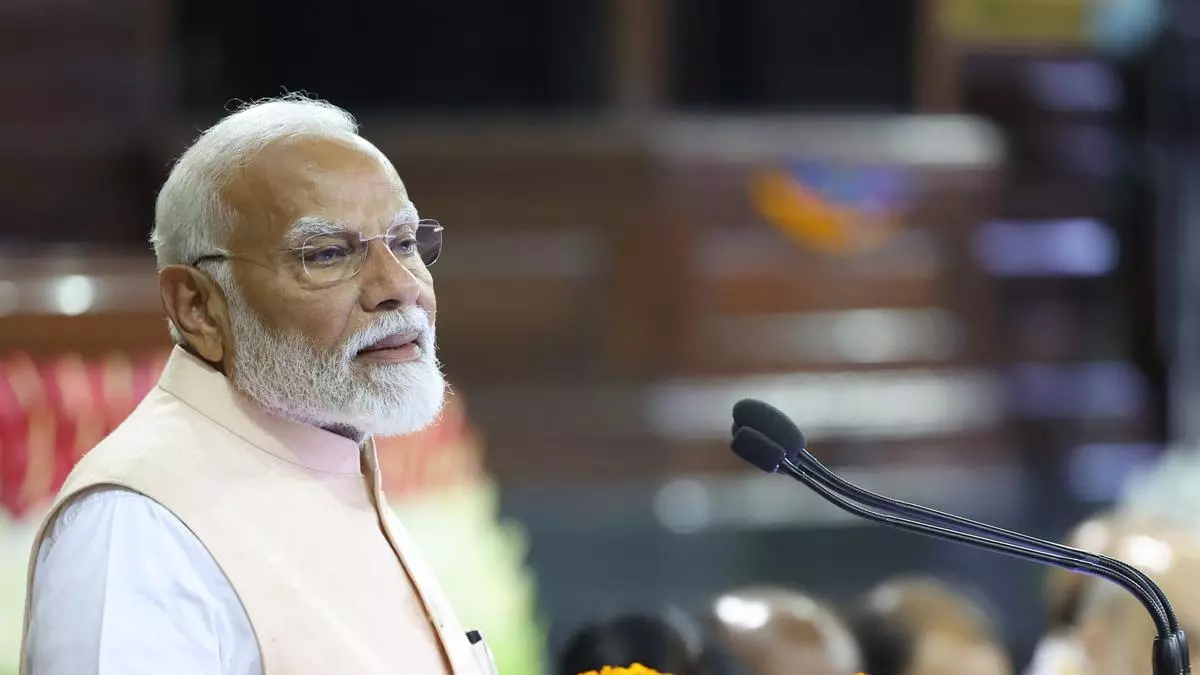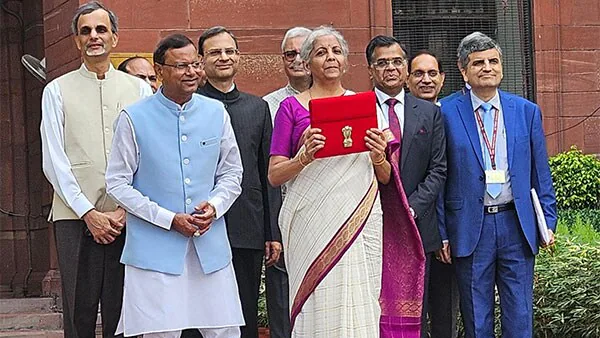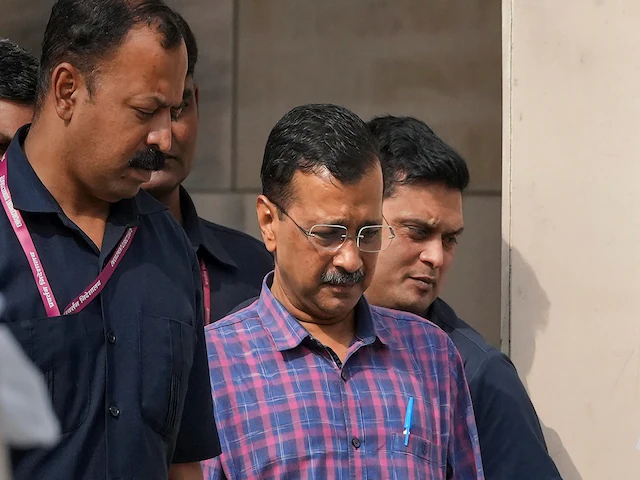Prime Minister Narendra Modi today chaired the NDA parliamentary meet, marking his first address to the MPs of the ruling bloc during the first session of Parliament since assuming office for his third term. The NDA parliamentary meet is significant, as it comes amid ongoing discussions on the Motion of Thanks to President Droupadi Murmu’s address.
Key Points of the NDA Parliamentary Meet
- First Address in Current Session: PM Modi’s address to the NDA MPs is a pivotal moment in the current Parliament session.
- Motion of Thanks: The NDA parliamentary meet coincides with discussions in the Lok Sabha and Rajya Sabha regarding the Motion of Thanks to President Murmu’s address.
- Attendance: All MPs from the BJP and its allies attended the NDA parliamentary meet.
Prime Minister Narendra Modi chaired the National Democratic Alliance’s (NDA) parliamentary meet on Tuesday, a significant event as it was his first address to the NDA MPs during the ongoing session of Parliament. This NDA parliamentary meet holds particular importance as discussions on the Motion of Thanks to President Droupadi Murmu’s address to a joint sitting of Parliament are taking place.
Importance of the NDA Parliamentary Meet
The NDA parliamentary meet is a crucial platform for the ruling bloc to strategize and unify their efforts in the ongoing Parliament session. With the BJP having lost its majority in the Lok Sabha for the first time since 2014, the reliance on allies within the NDA is more critical than ever for the government’s continuity. This meeting is essential for maintaining cohesion among the NDA members and addressing any concerns or strategies moving forward.
Discussions on Motion of Thanks
The discussions on the Motion of Thanks to President Murmu’s address are a key focus during this NDA parliamentary meet. Later today, PM Modi is expected to respond to these discussions in both the Lok Sabha and Rajya Sabha. This response is anticipated to be a significant moment in the session, as it will address the President’s outline of the government’s agenda and priorities for the coming term.
According to official sources, all BJP and allied members of Parliament were notified and asked to attend the NDA parliamentary meet. This underscores the importance of unity and collective action among the ruling bloc members.
Historically, Prime Minister Modi has addressed NDA MPs on various occasions, particularly when elected as their leader for his three terms. However, he typically speaks at meetings of Bharatiya Janata Party (BJP) MPs during sessions. This NDA parliamentary meet is distinct in its timing and context, marking a strategic moment for the ruling coalition.
Political Context and Reactions
This NDA parliamentary meet also comes at a time of heightened political activity and controversy. On Monday, the Lok Sabha was adjourned until 11 am on Tuesday. During the session, Rahul Gandhi’s remarks on Hinduism stirred controversy, and the Leader of the Opposition in the Rajya Sabha, Mallikarjun Kharge, accused Prime Minister Narendra Modi of delivering “divisive” speeches during the Lok Sabha elections.
The two Houses resumed debate on the Motion of Thanks to the President’s address, where PM Modi criticized Rahul Gandhi’s comments. “Calling the entire Hindu community violent is a very serious matter,” PM Modi stated.
Following PM Modi’s remarks, Home Minister Amit Shah also demanded an apology from Rahul Gandhi. The BJP held a press conference to denounce Rahul Gandhi’s statements, while the Congress held an evening presser to criticize the ruling party.
The NDA parliamentary meet, chaired by PM Modi, is a pivotal event amid the ongoing Parliament session. The discussions on the Motion of Thanks and the political exchanges highlight the dynamic and charged atmosphere in both Houses. As PM Modi prepares to respond to the debates, the outcomes of the NDA parliamentary meet will be closely watched by political analysts and the public. This meeting not only reinforces the unity within the NDA but also sets the stage for the ruling coalition’s approach in the current Parliament session and beyond.
Broader Implications and Future Steps
The NDA parliamentary meet is not just a routine gathering but a strategic assembly to address current political challenges and set the course for future legislative actions. The importance of this meeting is further amplified by the recent electoral dynamics, where the BJP, despite being the largest party, must navigate the complexities of coalition politics. This NDA parliamentary meet, therefore, serves as a critical juncture for planning, discussion, and alignment of the ruling bloc’s objectives.
PM Modi’s expected response to the Motion of Thanks discussions will likely outline the government’s vision and reinforce its commitment to addressing national issues, continuing economic reforms, and ensuring social welfare. His address will also be crucial in countering opposition criticisms and showcasing the achievements of his administration.
Moreover, the unity and collaboration demonstrated at the NDA parliamentary meet are vital for the smooth functioning of Parliament and the effective implementation of policies. As the session progresses, the ruling coalition’s ability to maintain solidarity and address emerging issues will be key to its legislative success.
Final Thoughts
In conclusion, the NDA parliamentary meet chaired by PM Modi is a significant event that highlights the strategic importance of unity and coordination within the ruling coalition. Amidst ongoing discussions on the Motion of Thanks and a charged political atmosphere, this meeting underscores the NDA’s collective resolve to navigate challenges and advance its legislative agenda. The outcomes of this NDA parliamentary meet will be instrumental in shaping the course of the current Parliament session and the broader political landscape.
(With PTI Inputs)
For further insights and comprehensive content, please visit our homepage



